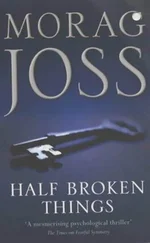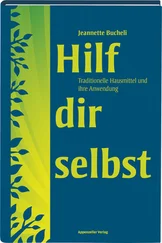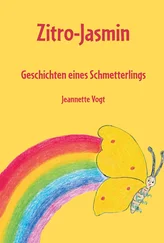II THE MIRACULOUS STAIRCASE

Lily Casey, age thirteen, at the Sisters of Loretto
WE TRAVELED THREE DAYSto reach the Casey Ranch, which Dad, with his love of phonetic spelling, insisted should officially be renamed the KC Ranch. It was in the middle of the Hondo Valley, south of the Capitan Mountains, and the countryside was so green that when I first laid eyes on it, I could hardly believe what I was seeing. The ranch was really more of a farm, with fields of alfalfa, rows of tomato vines, and orchards of peach trees and pecan trees planted a hundred years ago by the Spanish. The pecan trees were so big that when Helen and Buster and I joined hands, we couldn’t reach all the way around.
The house, which Dad’s pa had bought from a Frenchman when he first moved to the area, was made of adobe and stone. There were two bedrooms inside-so the grown-ups and kids didn’t have to sleep in the same room-and a woodshed outside for Lupe, while Apache took over one of the barn stalls. I couldn’t believe we would live in such grandeur. The walls were as thick as Dad’s forearm was long. “No tornado’s ever going to knock this feller down,” he said.
The next day, while we were unpacking, Dad hollered for us to come outside. I’d never heard him so excited. We ran out the door, and Dad was standing in the yard, pointing up at the sky. There, floating in the air above the horizon, was an upside-down town. You could see the low, flat stores, the adobe church, the horses tied to the hitching posts, and the people walking in the streets.
We all stared slack-jawed, and Lupe made a sign of the cross. It wasn’t a miracle, Dad said, it was a mirage, a mirage of Tinnie, the town about six miles away. To me, the mirage seemed nothing short of a miracle. It was huge, taking up a big hunk of the sky, and I was mesmerized watching those upside-down people silently walking through those upside-down streets.
We all stood staring at the mirage for the longest time, and then it got all fuzzy and faded until it finally disappeared. We’d seen mirages before, patches of blue on the ground that looked for all the world like puddles on the driest days. Dad said that those were ground mirages, and what looked like water on the ground was really the sky. This was a heavenly mirage, he said, which was created when the air closer to the ground was cooler than the air above it.
Even though I was usually good at science, I couldn’t grasp what Dad was saying. He drew me a diagram in the dirt, showing how the light was refracted by the cool air, which bent it along the curve of the earth’s surface.
The idea of light somehow bending didn’t make any sense, until Dad reminded me that when you held up a glass of water, your fingers on the far side of the glass looked like they’d been chopped off and moved. That was because the water was bending the light, and the cold air did the same.
All of a sudden what Dad was saying did make sense, and the knowledge of it truly lit me up.
Dad, who was watching me, said, “Eureka!” He started telling me about this ancient Greek fellow named Archimedes who ran naked through the streets shouting, “Eureka!” after he figured out a way to calculate volume while sitting in his bathtub.
I could see why Archimedes got all excited. There was nothing finer than the feeling that came rushing through you when it clicked and you suddenly understood something that had puzzled you. It made you think it just might be possible to get a handle on this old world after all.
DAD RELISHED THE NOTIONof being a big landowner but not the headaches that came with it. Instead of the fenced-in range land we had in west Texas, there were now fields to be tilled, planted, and weeded, peaches picked, pecans collected, manure spread, watermelons hauled to market, migrants hired and fed. Because of his gimp leg, some of the work-like pruning peach trees from a ladder-was beyond Dad, and his speech impediment made it hard for the help to understand him, so even though I was still only eleven, I took on the hiring and overseeing.
Also, Dad was never the most practical man in the world, and in New Mexico he started getting caught up in all sorts of projects that had nothing to do with running the farm. We were still training horses, and Dad was still writing politicians and newspapers, railing against modernization. But now he spent hours making two copies of every letter he wrote, filing one in his desk and keeping the other in the barn in case the house burned down.
At the same time, Dad was working on a book arguing the case for phonetic spelling. He called it A Ghoti out of Water. “Ghoti,” he liked to point out, could be pronounced like “fish.” The “gh” had the “f” sound in “enough,” the “o” had the short “i” sound in “women,” and “ti” had the “sh” sound in “nation.”
Dad also started a biography of Billy the Kid, who had stopped at the Casey Ranch when Dad was a teenager and asked to swap his spent horse for a fresh mount. “Right polite feller,” Dad always said. “And sat a horse well.” It turned out the Kid had been on the run, as Dad found out an hour later when a posse stopped and also asked to swap horses. Dad, secretly rooting for the Kid, passed off some old nags on them. Now, in New Mexico, he became so obsessed with the Kid that he put a tintype of him on the wall. Mom hated the Kid, whom she called “two-bit trash” because he’d killed a man who was engaged to her cousin, and she hung that fellow’s picture next to the Kid’s.
But Dad felt the cousin must have deserved to die. The Kid, he said, never shot anyone who didn’t need shooting. Dad considered the Kid a good American boy with hot Irish blood who’d been vilified by the cattle barons for standing up for the Mexicans. “History gets written by the winners,” he said, “and when the crooks win, you get crooked history.”
His biography was going to vindicate the Kid, prove that Dad, despite his speech impediment, was better with words than anyone who’d ever laughed at him, and make us more money than we’d ever make growing peaches, pecans, tomatoes, and watermelons. Westerns sell like hotcakes, he kept saying, and besides, a writer’s got no overhead and he never has to worry about the weather.
THE FALL THAT Iturned twelve, Buster left to go to school, even though he was two years younger than me. Mom said that his education was important for his career-for becoming anything he wanted to become-and they enrolled him in a fancy Jesuit school near Albuquerque. But they’d promised me that when I turned thirteen, I could go to the Sisters of Loretto Academy of Our Lady of the Light in Santa Fe.
I’d wanted to go to a real school for years, and the day finally came when Dad hitched up the buckboard and we set out on the two-hundred-mile journey, camping at night on bedrolls under the stars. Dad was almost as excited about me going off to school as I was, and seeing as how I hadn’t spent too much time around girls my age out on the ranch, he gave me an earful of advice about how to get along.
I tended to be a tad bossy, he said, as I was used to ordering around Helen and Buster and Lupe and the migrants. But in school there were going to be a lot of bigger, older girls who’d be bossing me around-not to mention the nuns-and instead of fighting with them, I’d have to learn how to get along. The best way to do that, Dad said, was to figure out what somebody wanted, because everybody wanted something, and make them think you could help them get it. Dad admitted that, as he put it, he wasn’t the best exemplar of his own creed, but if I could find some way to apply it to my life, I’d go a lot further.
Читать дальше










